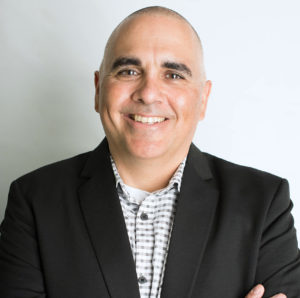Eventually you’re going to need some help… trust me. You can’t do it all on your own forever. I tried to do it by myself for so many years, and you know if you’ve been listening to this podcast for a while that I have a tendency to overwork myself. I’m finally finding out in year 7 of doing this that getting support & dedicating time to building & empowering a team is something I need to take seriously.
Amy is the third person in this series of powerhouse online business managers (starting with Sarah Noked in episode 311, Tasha Booth in episode 315, and now Amy Lockrin) that I talked to about the business of running a business and the behind-the-scenes of making it all happen.
Amy is incredible and I’m so excited for everyone to hear the amazing things she has to share, like some of the common patterns she sees that prevent people from getting to the next level. Keep in mind that she doesn’t just work for her own business — but she also works with incredible entrepreneurs and has seen these patterns over and over and over.
Amy has also contrastively worked with million-dollar business owners and has seen what they do differently. Definitely listen to what she has to say & take it to heart because this isn’t just her opinions — she’s actually lived these experiences.
Everything we talked about was exactly what I needed to hear, and I hope everyone listening finds the thing they need to hear to get reinspired, remotivated, and ready to break through to the next level.
Amy and I talk about:
- Amy’s journey from corporate to self-employment.
- Amy’s strategy of over-delivering to impress her clients and get more referrals.
- Her advice if you are starting out and having trouble with charging your worth.
- The difference between a virtual assistant and an online business manager.
- Common patterns Amy sees that are preventing people from getting to the next level in their business.
- What makes a successful VA hire.
- Why you need to reflect on your feelings about the value you bring to your clients.
- Her best advice if you are struggling to get traction in your side hustle.
- The belief Amy had to change about herself to get where she is today.
My favorite quotes from Amy:
- “I need to create something that's going to work for me and what my vision and ideals were.”
- “I know the struggles that it takes to get to where people aren't considering themselves a success.”
- “This could actually be where I'm able to change my life and leave corporate and do the thing that I want to do”
Bio:
After 12+ years of climbing the corporate ladder, Amy threw caution to the wind and branched out on her own to help entrepreneurs take the next steps towards growing their own businesses. Amy is 100% strategy-focused so that her clients can stop worrying about the small details and start focusing on the big picture—and their profits. When she's not strategizing for her clients, you'll likely find her spending time with her husband and two kiddos.






